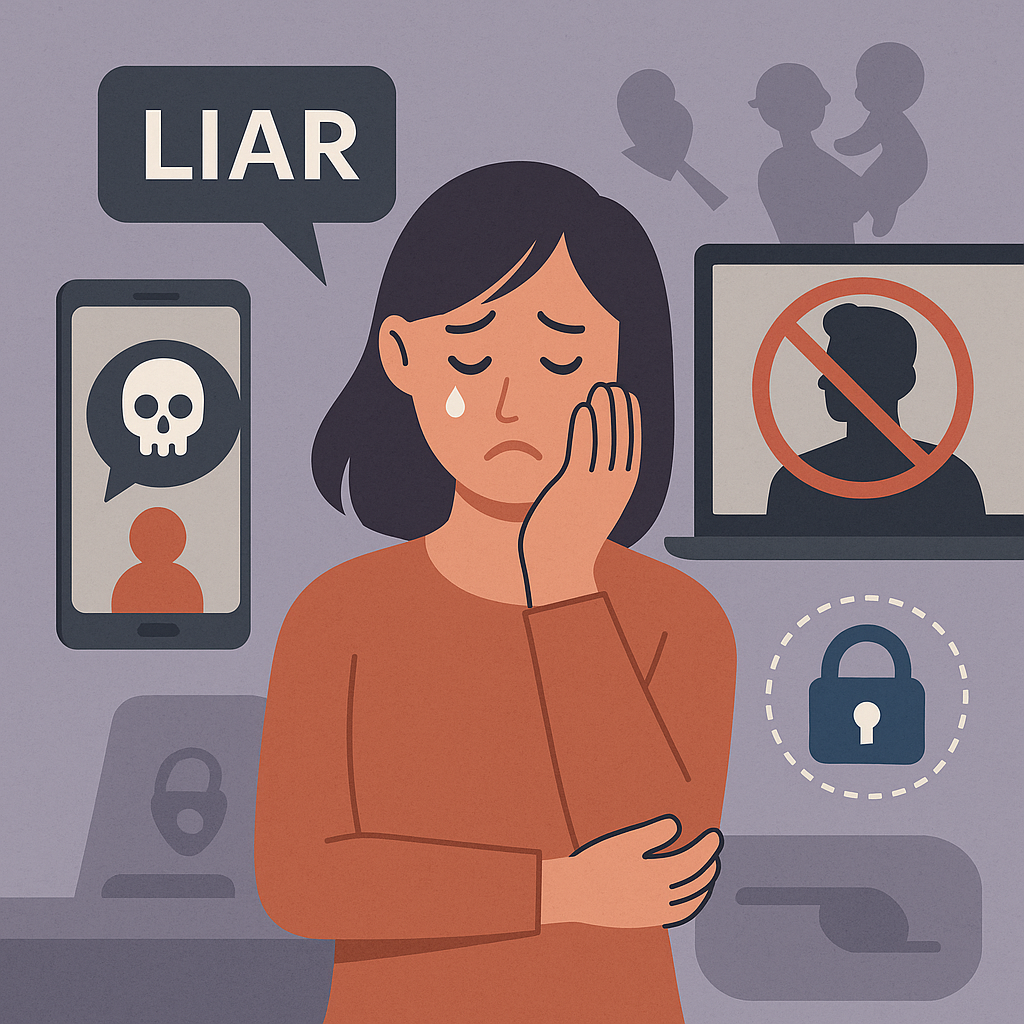Navigating Cyber-Harassment in Utah: Social-Media Abuse in Divorce or Custody Cases
Plain-English guide to Utah cyber-harassment, documentation, protective orders, and custody impact
When emotions run high during a divorce or custody dispute, social media can become a dangerous outlet. In Utah, cyber-harassment and digital abuse are increasingly showing up in family law cases, from threatening messages to public shaming posts or hidden spyware. This guide explains what counts as cyber-harassment, how to report it, and how Utah courts handle online abuse when family relationships are already under strain.
Understanding Cyber-Harassment Under Utah Law
Utah treats cyber-harassment seriously, recognizing it as a modern form of abuse that can extend far beyond screens. Under Utah Code § 76-5-109, harassment includes communication intended to threaten, intimidate, or alarm another person whether by text, email, or social media.
When harassment occurs online, it can include:
- Posting private or humiliating information about someone (“doxxing”)
- Sending repeated threatening or demeaning messages
- Impersonating someone to cause harm
- Sharing or threatening to share intimate photos without consent
These actions can result in both criminal charges and civil protective orders, especially if they happen during divorce or custody proceedings where emotions and stakes are high.
Case Scenario: The Digital Divide
Take Emily, for example. After filing for divorce, she started receiving dozens of texts and Facebook messages from her ex-spouse, accusing her of lying and threatening to “make sure she never sees the kids again.” When Emily blocked him, the harassment moved to fake social accounts that posted photos of her and her children.
This type of behavior fits squarely within Utah’s cyber-harassment framework. Once documented, Emily could seek both a protective order and a stalking injunction. Utah courts recognize that harassment through digital means can cause the same fear and emotional distress as in-person stalking.
Reporting and Documentation
If you’re facing online threats or harassment in Utah, your first step is documentation. Judges need clear proof of what occurred, and digital evidence can disappear quickly.
Protective Orders and Stalking Injunctions
In cases where cyber-harassment turns into real fear or ongoing threats, victims can request a protective order or stalking injunction.
- Protective orders can prohibit all contact, including online communication.
- Stalking injunctions apply when harassment involves repeated or threatening contact through any medium, including social media.
Under Utah Code § 77-3a-101, these legal tools help victims gain safety and peace while courts determine longer-term custody or visitation arrangements.
When Cyber-Harassment Affects Custody
Utah courts take online behavior into account when determining custody and visitation. A parent who uses digital tools to harass, stalk, or threaten may be viewed as creating an unsafe environment for the child.
Judges often look at:
- Whether a parent uses social media to demean or threaten the other parent
- How the conduct affects the child’s emotional well-being
- Whether the parent can follow court boundaries and communication rules
Even indirect actions like tagging the other parent in angry posts or encouraging others to pile on can influence a custody outcome.
Safety and Digital Privacy Tips
Update passwords and enable two-factor authentication on all accounts.
Avoid oversharing about your legal case or family life online.
Check your devices for spyware or tracking apps if you suspect monitoring.
Limit contact to court-approved channels when dealing with your ex.
YouTube & Instagram Features
Need Help Applying This to Your Situation?
Online harassment can feel overwhelming, especially when it overlaps with family court battles. Utah law gives you tools to stay safe and take control of the situation. Report threats, save evidence, and reach out to law enforcement or a legal professional for support.
Talk to a Utah AttorneyFor more Utah-specific guides on family and digital law, visit UtahLawExplained.com — your trusted source for plain-English legal understanding in the state of Utah.
